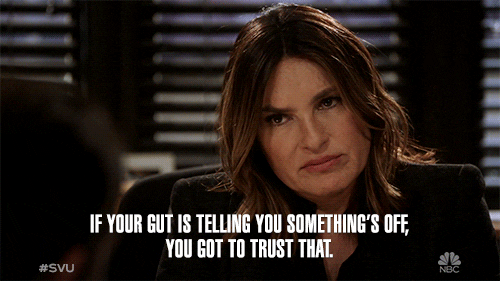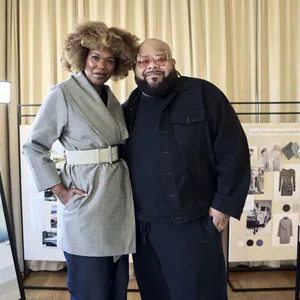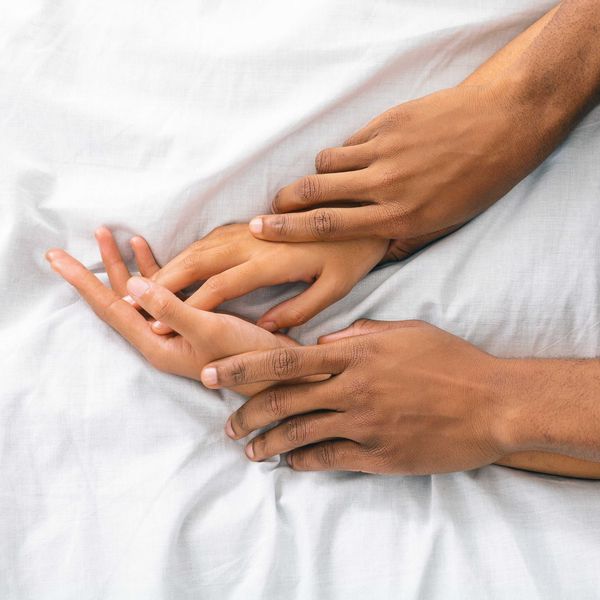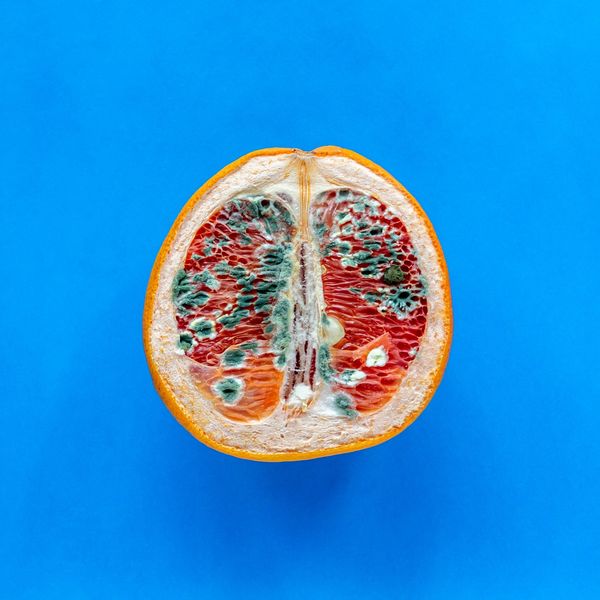Something that has come to fascinate me more, more and more over time, is what pH balance represents when it comes to our overall health and well-being. Another term for pH balance is acid-base balance which basically represents how much acidity and alkalinity are in our blood, especially as it relates to our lungs, kidneys and body buffer systems.
Monitoring your pH balance has to do with a scale of sorts. Blood-wise, the numbers are between 0-14 with 0 being strongly acidic and 14 being very alkaline (or base). The key is for your system to remain as neutral as possible by hanging somewhere around 7-7.45 (because blood is naturally more acidic) at all times. When this doesn't happen, health issues can arise including fatigue, high stress, indigestion, insomnia, lung and kidney challenges — oh, and vaginal drama.
Today, we're gonna talk more about the vaginal side of things. How to know what your vagina's pH is supposed to be, what to do if your pH is a little off and how to keep things on track (balanced) as much as possible. Ready?
What Is Your Vagina’s pH and Why Does It Matter?

When it comes to your vagina's pH levels, specifically, it's important to know what it is because it lets you know if your vagina is truly healthy or not.
Remember how I said that when it comes to your blood, you're in good shape if you're in the midway part of "7"? Well, as far as your vagina goes, the level that you need to be looking for is somewhere between 3.8 and 4.5 (although it should go on record that during your reproductive years, your pH is usually closer to 4.5 yet loses acidity as you head towards menopause, taking it to around a 5). What that range basically means is your vagina's pH is normal although it's leaning towards being acidic.
This is important to know because acid is what helps to protect your vagina from infections; however, if it's too acidic (under 4 or so), that can actually put you at risk for bacterial vaginosis (a bacterial overgrowth), a yeast infection (a fungus overgrowth) and trichomoniasis (an STD). Not only that but high acidity can also affect your fertility, if you're not careful. The reason behind that is it's easier for sperm to move around in a more alkaline environment. Just one more reason to keep your vagina as healthy as possible.
And just how can you know for sure that your vagina's pH is right where it's supposed to be? Thankfully, there are at-home tests that consist of you holding some pH paper on one side of your vagina for a few seconds. Then you compare the color on the paper to the color on the chart of the test to see what your results are. Since these tests are as effective as the ones that doctors use, it's an inexpensive and convenient way to see if your vagina is "lining up" with where it should be. You should be able to find vaginal screening tests at your local Walmart or drugstore (like CVS).
And just what can cause a vagina's pH to get out of balance?
What Can Throw Off Your Vagina’s pH?

There's no way around the fact that our vaginas are pretty sensitive. That's why it's so important to know what can throw your vagina's pH balance off. Your menstrual cycle (and pregnancy) can do it because menstrual blood has a way of raising your vagina's pH levels. Antibiotics can do it because not only do those tend to get rid of the bad bacteria that causes a disease or ailment but the good bacteria as well (which is why you should up your probiotic intake if you are currently on an antibiotic prescription; probiotics help to replenish good bacteria in your system). One of the reasons why douching is an absolute no-no is because it also increases your vagina's pH.
Consuming a lot of sugar isn't a good idea because yeast and bacteria feed off of sugar and the overgrowth of either can throw off your pH and lead to a yeast infection. Super tight clothes or panties that aren't made out of breathable fabrics like cotton aren't good for your vagina's pH because the combination of heat and moisture is also ideal for bacterial growth. If you're sleeping with more than one person, use a condom; sperm is alkaline and can trigger bacterial growth (especially with "unfamiliar" semen). Stress is another thing that can throw your vagina's pH levels way off too (more on that in a bit).
So, say that your vagina's pH isn't where it's supposed to be. What are some clear indications of that? A change in your vaginal discharge (especially if it's frothy, green and/or itchy). A fishy smell. Vaginal irritation. A burning sensation when you urinate.
When Should You See Your Doctor About Your Vagina’s pH?

So, what if you take a pH test and it does reveal that "your numbers" do not fall between the 3.8 and 4.5 mark and/or you've got any of the symptoms that I just mentioned? Should you make an appointment to see your doctor if that is the case? Possibly.
What I mean by that is, if the symptoms point to a yeast infection and you've already had one of those before, usually it's fine to just go to your local drugstore and get what you need to heal it (unless you've had more than one in the past six months or it doesn't seem to go away with over the counter treatments). However, if the symptoms are different, more extreme or there is a foul odor, don't "Google your way" into a solution. As much as I'm all about a home remedy, sometimes you can make matters worse if you find yourself "treating" the wrong ailment because you misdiagnosed the issue.
5 Ways to Maintain a Proper Vaginal pH Balance

Now that you know what to do if your vaginal pH isn't hanging around the numbers that it should, let me end this with some proactive ways to keep that from being an issue in the first place. The good news is all of these tips are pretty easy to implement.
Take a probiotic. There are good and bad bacteria in your vagina. Aside from eating less sugar, something else that can keep bad bacteria from totally taking over is taking a probiotic supplement. As far as which ones you should take, check out The Healthy's "12 Best Probiotics for Women" for a good point of reference. Also, foods that are naturally high in probiotics include Greek yogurt, fermented foods like pickles, kefir and sauerkraut, raw cheese, brine-cured olives, apple cider vinegar and sour cream.
Watch what goes into your vagina. So, here's the thing about semen — it has a pH of being somewhere between 7.1 and 8 (very alkaline). When you engage in sexual intercourse, your vagina's pH naturally rises in order to become more alkaline and protect the sperm (so that conception can transpire). However, what this can also do is make your vagina way more vulnerable to bacterial growth. That's why, unless you are in an exclusive long-term relationship, it's really best to wear a condom every time. And what about rubbers? Can they mess up your pH too? While technically they could, if you happen to experience a vaginal reaction, it's probably more about being allergic to latex because studies reveal that consistent condom use actually decreases the chances of having an imbalanced vaginal pH.
Ditch tampons. Growing up, I wasn't "allowed" to use tampons. In college, I "rebelled" and started to use them. In my 30s, I went back to pads and now I'm all about the menstrual cup. My mother used to always say that period blood shouldn't just "sit" in a woman's vagina; it needs to flow out. I agree. And you know what? Something else that blood-filled tampons can do is throw your vagina's pH levels off. Just one more reason to try a menstrual cup (by the way, if you've got a high cervix, INTIMINA's Lily Cup is all good things).
Drink water. Something else that having an imbalanced vaginal pH can do is lead to a urinary tract infection (UTI); not that it "causes" a UTI. It's more like, being that this kind of infection is typically the result of Escherichia coli (E. coli) and bacteria thrives in toxins, drinking lots of water can help to keep toxins out and remove bacteria on a consistent basis so that you're less susceptible to a UTI occurring.
Keep your stress levels down. Last fall, I wrote "Ever Wonder If Your Vagina Is Stressed TF Out?" for the platform. It's all about signs that your vagina is stressed. One red flag is your discharge is different which is usually directly connected to your pH levels. Listen, if anything can put your hormones in influx which can wreck your sleep and diet which can lower your immunity and make your vagina more susceptible to bacterial and fungal growth, it's stress. So, whether it's a person, place, thing or idea, please be hypervigilant about not allowing anyone or anything ruin your peace. There's a huge chance that your vagina will show all the way out if it does and as you've already read, that's just one more reason why being stressed is totally not worth it. Not at all.
Join our xoTribe, an exclusive community dedicated to YOU and your stories and all things xoNecole. Be a part of a growing community of women from all over the world who come together to uplift, inspire, and inform each other on all things related to the glow up.
Featured image by Getty Images
- Holistic Care Vaginal Health Wellness - xoNecole: Women's Interest ... ›
- After Sex Hygiene, After Sex Vaginal Care - xoNecole: Women's ... ›
- Best Foods For Healthy Vagina - Optimal Vaginal Health - xoNecole ... ›
- 10 Things Your Vagina Wants - xoNecole: Women's Interest, Love ... ›
- Treat Chronic BV - Bacterial Vaginosis - Holistic Health - xoNecole ... ›
- Vaginal Health, Diet Changes pH Balance - xoNecole: Women's ... ›
- Best DIY Feminine Wash, Vaginal Wash Recipes - xoNecole ... ›
- Itching Vagina After Sex: Normal? Causes? - xoNecole: Women's Interest, Love, Wellness, Beauty ›
- Different Vagina Smells Meaning - xoNecole: Women's Interest, Love, Wellness, Beauty ›
- Vaginal Health Resolutions To Improve Your Vagina - xoNecole: Women's Interest, Love, Wellness, Beauty ›
- What Causes Vaginal pH Imbalance Symptoms BV - xoNecole: Lifestyle, Culture, Love, & Wellness ›



























